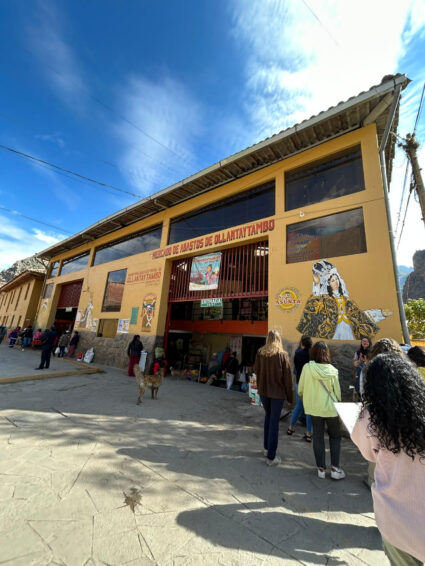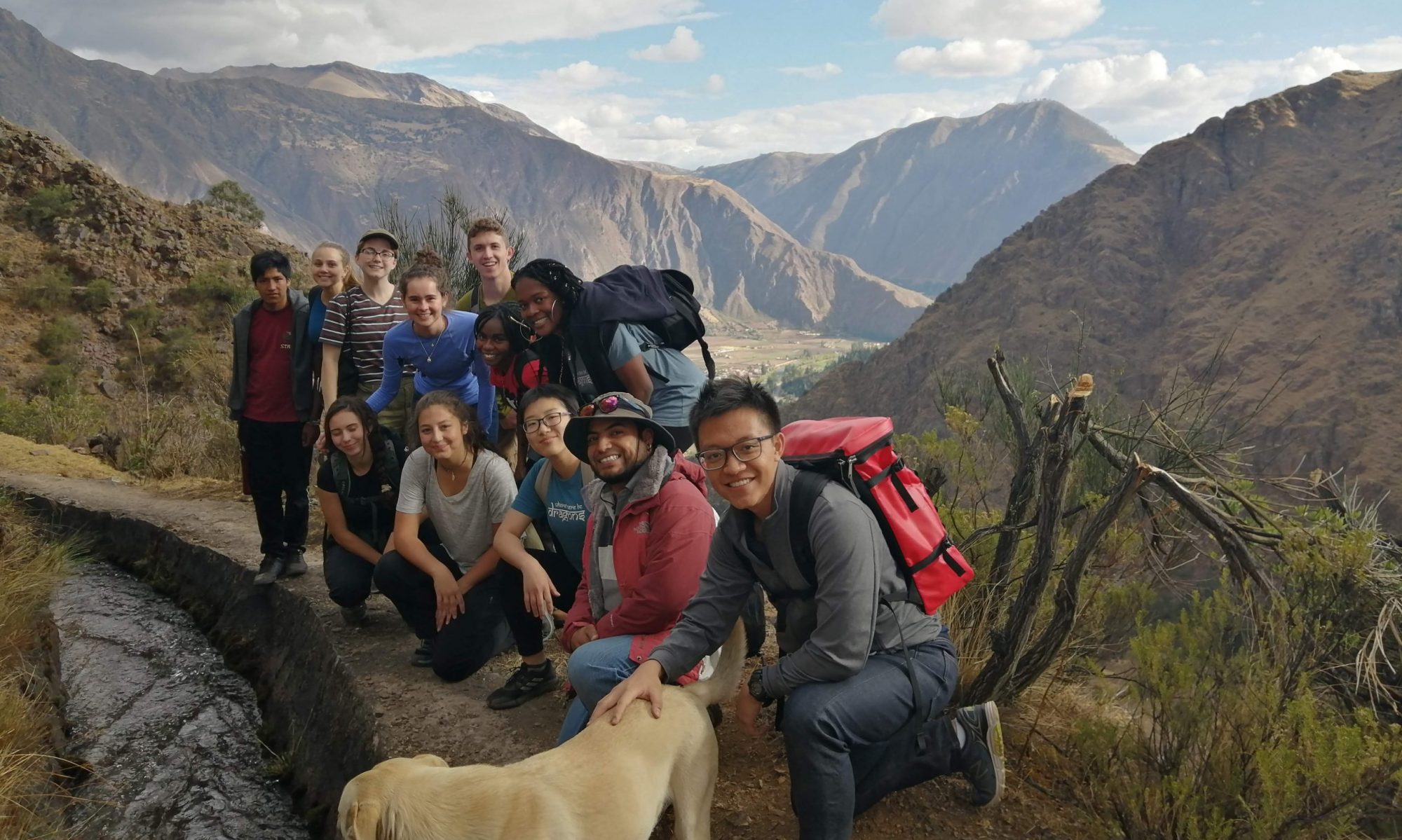by Emma, Civic Semester Participant

Imagine that you are pregnant, very close to giving birth to your child. You live in a remote region– an 18 hour walk away from the nearest medical center. The medical center may not even have staff willing to speak your language, Quechua, the indigenous language. In Peru, it is mandatory to give birth in a health center, and if you do not, you must pay a fine to have the child legally registered, which is something you cannot afford. If you needed a C-section, or any surgery, you would need to travel another two hours by car to Cusco.
Sacred Valley Health, or Ayni Wasi, is a community-based, public health non-profit devoted to providing access to healthcare in remote areas. They currently work with 14 campesino (agricultural) communities, each an average of four hours walking distance to the nearest town, Ollantaytambo. This organization trains volunteers from the campesino communities to be promotoras, who provide health education and basic medical care such as house visits. The program to train these promotoras lasts two years and ensures that volunteers are well prepared for a variety of situations, including domestic violence, applying tourniquets, anemia, and diarrhea. They also are trained in preventative health, helping others with hygiene and safe water/ cooking practices. The programs are crafted for the communities they are serving and for the volunteers’ learning– the evaluations and course manuals are all mainly photos because many of the potential promotoras cannot read or write. Three out of the seven staff are from local areas, and they must approve each step of the program-creating process. Ayni Wasi surveys community members to see what they believe should be included in the programs. There are currently 57 total promotoras throughout the 14 communities.
Once promotoras gain enough experience and respect as healthcare providers within their communities, they can become docentes, or teachers, and train other volunteers in the community to be health workers. This promotes the organization’s main goal– sustainability. Ayni Wasi translates from Quechua to “House of Reciprocity”. Ayni is a sacred idea in these campesino communities, a concept representing the exchange of energy between humans, nature, and the universe. One should help their neighbor and will be helped in return. The promotoras provide care to their communities, and the docentes further the process by educating more caregivers. The organization’s ultimate goal is to no longer be needed, where promotoras and docentes provide the healthcare needed in the communities and train future generations to do the same.
This organization truly sees the assets within each of the 14 communities they partner with. They do not impose themselves or rely on pre-made programs. Instead, they listen to communities and ensure that members are interested and invested in implementing their ideas. The organization was started by Americans, which is an important factor to recognize, but its mission stressed the importance of prioritizing local voices both on staff and in communities. For example, we learned that the current executive director is stepping down to an alternative position and a Peruvian will fill the role.
The organization wants its programs to be as sustainable as possible and not create any sense of dependency between the community and the organization. Although they have structured their programs around this idea, they also openly struggle with it. We discussed how promotoras receive their medical supplies, such as antibiotic wipes and gloves, directly from the organization. Without the organization’s presence, which is the long-term goal, how would communities get those supplies? There is also a financial incentive to being a promotora or docente, which is part of how the organization recruits volunteers for the trainings. Without the organization providing a financial incentive, would the program have enough new people to continue? These are all valuable questions that Ayni Wasi, and now our cohort, have been thinking about a lot.
Access to healthcare is a privilege everyone should be granted, regardless of economic status, location, language, or identity. Ayni Wasi is empowering communities while helping people lead healthier, safer lives. Visiting this organization has taught us more about the Peruvian healthcare system and local campesino communities. We learned the importance of listening to others and creating programs that empower rather than impose. Going back to Tufts, I am excited to study pre-health courses and implement what I have learned from my time at this organization.
